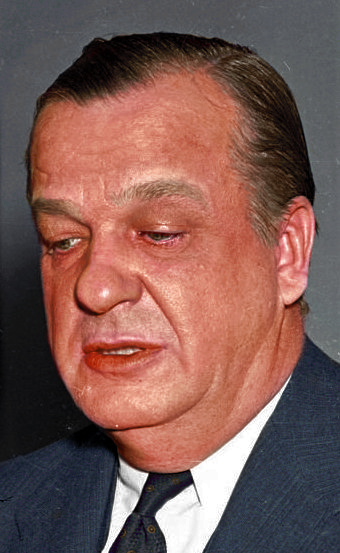The Evening Star (September 3, 1945)

Eliot: Marshall critics called unjust
By Maj. George Fielding Eliot
The ingratitude of republics to their faithful servants, and the stupid glee of the little man in seeing mud flung upon the reputation of the great, are so well known as to have passed into the proverbs of our race.
But usually a little time elapses between the accomplishments which have justly earned the recognition of the people and the moment of their fading from the public memory.
Such has not been the fortune of General of the Army George C. Marshall. In the very moment of victories which he has done more than any other living American to win, he finds himself attacked – even vilified – for his part in the tragic disaster at Pearl Harbor on December 7, 1941.
I do not for a moment contend that the facts about Pearl Harbor should not be published. I am not attempting to assess the truth or error of the strictures passed upon Gen. Marshall by the Army’s Court of Inquiry. My quarrel is with the press and radio comment, the headlines: “Marshall Accused of Pearl Harbor Guilt!” – and the almost total lack of voices raised to point out the tremendous services that George C. Marshall has subsequently rendered to the people of the United States.
It is as though one were to pick up a newspaper bearing an October 1781 headline, and read something like this:
“Washington Charged with Tragic Failure in Battle of Long Island!” – and then saw on the other side of the page the news o Cornwallis’ surrender at Yorktown.
Washington certainly made a serious mistake in 1776, at the Battle of Long Island. But he retrieved that error, and it has been forgotten.
![]()
All generals, said Napoleon, make mistakes; victory goes to him who makes the fewest.
Judged by that standard, Gen. Marshall ranks high among the generals of all time, certainly very high among those of America.
He had first to create, train and organize the greatest army that this country ever set in the field. Then he had to participate in the decisions as to how that army should be used – as to how, indeed, all the armed forces of the United States and the British Commonwealth should be used to reach across the seas and bring down in ruin the mighty military machines of Germany and Japan.
It would be untrue, and unfair to other distinguished officers, to say that Gen. Marshall dominated the agency set up for this purpose – the combined chiefs of staff. But no one who knows anything of how that agency operated could choose any other name than Gen. Marshall’s if asked who was the most influential member.
![]()
Patiently, firmly, with a wisdom, a courage and a clear vision and purpose which has rarely been combined in a single man, Gen. Marshall pursued the task set for him by his country. Perhaps his greatest gift was his ability to win the confidence of all who came in contact with him. To command the respect of his superiors and the undying loyalty of his subordinates. He is a just man, who plays no favorites. He is selfless beyond the common run of great soldiers, thinking never of himself, always of his duty. His choice of leaders for the American Army in this war has sometimes been ruthless, but it has given us the best commanded army we have ever had and has saved countless American lives.
When the history of this war comes to be written after the passage of time enables that task to be undertaken objectively and in the clear light of truth revealed, the impartial historians must say that of all those who have worn the uniform of the United States, it was George C. Marshall who made the greatest contribution to our present victory. Whether in the field of organization, of strategic decision, of firmness under adversity or of relentless pressure in the hour of success, whether in the conviction which his words carried to his political superiors or in the welding through the power of a great and unselfish personality of a conglomerate mass of 8,000,000 civilians into the greatest army of all time – regard him as you may, Gen. Marshall is the chief architect of victory.
Must it be ever true that republics are ungrateful?